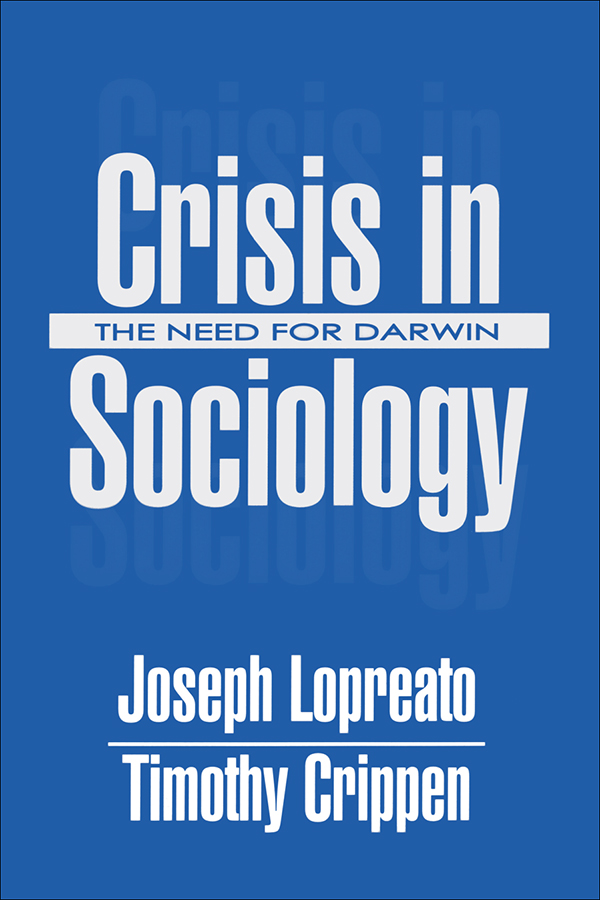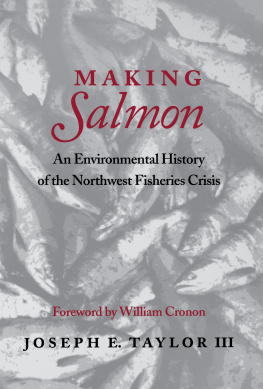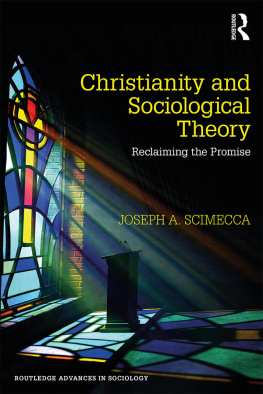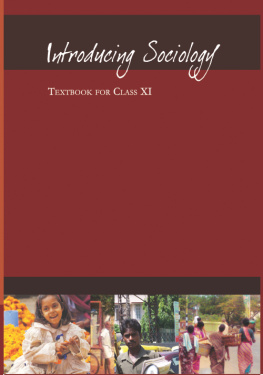Lopreato Joseph - Crisis in Sociology: The Need for Darwin
Here you can read online Lopreato Joseph - Crisis in Sociology: The Need for Darwin full text of the book (entire story) in english for free. Download pdf and epub, get meaning, cover and reviews about this ebook. year: 2017, publisher: Taylor & Francis Group, genre: Romance novel. Description of the work, (preface) as well as reviews are available. Best literature library LitArk.com created for fans of good reading and offers a wide selection of genres:
Romance novel
Science fiction
Adventure
Detective
Science
History
Home and family
Prose
Art
Politics
Computer
Non-fiction
Religion
Business
Children
Humor
Choose a favorite category and find really read worthwhile books. Enjoy immersion in the world of imagination, feel the emotions of the characters or learn something new for yourself, make an fascinating discovery.

- Book:Crisis in Sociology: The Need for Darwin
- Author:
- Publisher:Taylor & Francis Group
- Genre:
- Year:2017
- Rating:5 / 5
- Favourites:Add to favourites
- Your mark:
- 100
- 1
- 2
- 3
- 4
- 5
Crisis in Sociology: The Need for Darwin: summary, description and annotation
We offer to read an annotation, description, summary or preface (depends on what the author of the book "Crisis in Sociology: The Need for Darwin" wrote himself). If you haven't found the necessary information about the book — write in the comments, we will try to find it.
Crisis in Sociology: The Need for Darwin — read online for free the complete book (whole text) full work
Below is the text of the book, divided by pages. System saving the place of the last page read, allows you to conveniently read the book "Crisis in Sociology: The Need for Darwin" online for free, without having to search again every time where you left off. Put a bookmark, and you can go to the page where you finished reading at any time.
Font size:
Interval:
Bookmark:

Crisis in Sociology
THE NEED FDR DARWIN
Joseph Lopreato Timothy Grippen

First published 1999 by Transaction Publishers
Published 2017 by Routledge
2 Park Square, Milton Park, Abingdon, Oxon OX 14 4RN
711 Third Avenue, New York, NY 10017, USA
Routledge is an imprint of the Taylor & Francis Group, an informa business
Copyright 1999 by Taylor & Francis.
All rights reserved. No part of this book may be reprinted or reproduced or utilised in any form or by any electronic, mechanical, or other means, now known or hereafter invented, including photocopying and recording, or in any information storage or retrieval system, without permission in writing from the publishers.
Notice:
Product or corporate names may be trademarks or registered trademarks, and are used only for identification and explanation without intent to
Library of Congress Catalog Number: 98-50335
Library of Congress Cataloging-in-Publication Data
Lopreato, Joseph.
Crisis in sociology : the need for Darwin / Joseph Lopreato and Timothy Crippen.
p. cm.
Includes bibliographical references.
ISBN 0-7658-0874-9 (alk. paper)
1. SociologyResearch. 2. Social Darwinism. I. Crippen, Timothy Alan. II. Title.
HM24.L82 1999
301.072dc21
98-50335
CIP
ISBN 13: 978-0-7658-0874-5 (pbk)
ISBN 13: 978-1-56000-398-4 (hbk)
To Alan and Scott Schmidt,
Cherished Scions of a Beloved Child;
and
To Pam, Loving Wife and Loyal Friend
Whatever long time has sanctioned,
that is a law forever;
the law tradition makes
is the law of nature.
Euripides, The Bacchae.
Humanity is exalted not because we are so far above other living creatures, but because knowing them well elevates the very concept of life.
E.O. Wilson, Biophilia.
We are proud but concerned sociologists. We worry lest in the near future the current course of sociology will lead to academic self-destruction. We trust, therefore, that our readers will be influenced less by our criticisms of the current state of our discipline and more by our sincere, enthusiastic attempt to suggest a way out of what is by many accounts a very grave and deepening crisis.
Not all sociologists agree with this diagnosis. Many probably are so burdened by the heavy demands of their daily commitments to teaching and research that routine has become its own end. Others deny the crisis, or at least argue that it could be rather easily dispelled if only sociologists would make fairly minor adjustments in their practices. Some of the more common prescriptions would require fewer useless debates and mutually destructive critiques, a better integration of theory and methods, greater attempts at unification of existing theories, better public relations, and, among others, a greater objectivity so as to avoid ideologyof class, race, gender, and so on.
Still other members of the discipline share our own concerns in varying degrees. Some of these work outside universities, where demands on their craft tend to be practical and specific. There they often find that their skills are poorly valued because the real world and sociology have little or nothing in common. Others are academicians proud of their crafts potential but often exhausted by fruitless endeavors, their own included, to resolve the crisis and nurture the promise. Such scholars write books and articles on the crisis in sociology, the decomposition of sociology, the trained incompetence of sociologists, and related topics exemplified by journal symposia titles such as Whats Wrong with Sociology?
The indictments, or mere analyses, indicate a disturbing state of affairs. For instance, sociologists repeatedly take one another to task for failing to define concepts clearly and to develop genuinely falsifiable theories. They engage in debates that, in modified language, recur every few years. They have produced no sociological theory if you mean empirical relationships that are comfortably predictable and general enough to turn up across more than one topic; that is, they may speak of sociological laws, but these are neither real nor recognized as such. There is widespread separation between theory and method; and even our statistics, a major portion of our methodology, are almost entirely imported from such disciplines as economics and biology, and often employed to bewilder rather than to inform the reader. Further, most sociologists specialize in descriptive research that is motivated by their personal interests and sometimes experience. And as if these were not problems enough, many sociologists are distressed that their once promising science is now awash in the flotsam of extreme cultural relativism and multiculturalism, postmodernism, political correctness, and, permeating these and other isms, an ideological agenda driven by provincial concerns of race, class, and the many grievances of a radical brand of feminism.
To a degree, our sister disciplinesfor example, psychology, anthropology, political scienceshare our plight. But theyespecially psychology and to a lesser extent anthropologyare being better steered by their long-entrenched linkage to evolutionary biology. From this perspective, theyalong with various branches of zoology and several offshoots of sociology itself (e.g., urban studies, criminal justice, social work)are actively cannibalizing sociology. The external threat feeds with little or no resistance on our internal shortcomings.
Our own fear is that the crisis in sociology is so grave and pervasive that the once proud science of society risks deletion from the academia in the next twenty-five to thirty years. Our problems are many. But fundamentally, the crisis is rooted in our failure to discover and utilize even a single law or principle general enough to suggest a large number of logically interrelated hypotheses. Inevitably such a tool would also provide the logic needed for coherent conceptualization and operationalization, appropriate methods of falsification, and hence the guidance toward a growing body of systematic, cumulative knowledge represented by a hierarchy of theoretical propositions cutting across the entire institutional framework.
We further hold that, given our failure to independently discover general principles, we, like modern psychology and anthropology, should borrow them, with whatever modifications may seem appropriate, from the natural science closest in subject matter to sociology. We should stress here that, for us, sociology must be a science if it is to be anything at all. Hence, those who do not share this vision will find our book irrelevant and even antithetical to their scholarly interests.
The natural science closest to sociology, as to other social sciences, is evolutionary biology. For 150 years, this branch of knowledge has constituted a marvelous scientific revolution. In recent decades, moreover, evolutionary biology has made giant strides toward the study of behavior, human conduct included, through refinements of Darwinian theory, several aspects of genetic science, and such evolutionary disciplines as human ethology, primatology, neurobiology, neuroendocrinology, and Darwinian psychology, among others. Here, more than anywhere else, is where the action is today in behavioral science. Sociology will participate in this revolution or it will be cancelled out of the intellectual landscape.
Font size:
Interval:
Bookmark:
Similar books «Crisis in Sociology: The Need for Darwin»
Look at similar books to Crisis in Sociology: The Need for Darwin. We have selected literature similar in name and meaning in the hope of providing readers with more options to find new, interesting, not yet read works.
Discussion, reviews of the book Crisis in Sociology: The Need for Darwin and just readers' own opinions. Leave your comments, write what you think about the work, its meaning or the main characters. Specify what exactly you liked and what you didn't like, and why you think so.






